In today's fast-paced work environment, maintaining professional behavior is more crucial than ever. It not only fosters a positive workplace atmosphere but also enhances productivity and teamwork. As we continue to collaborate and innovate, let's remember the importance of respectful communication and accountability. I invite you to read more about key strategies for upholding professionalism in our daily interactions.

Clear subject line
Professional behavior in the workplace plays a crucial role in fostering a positive environment. Respectful communication, punctual attendance, and adherence to company policies are essential. Instances of inappropriate conduct can disrupt team dynamics and hinder productivity. Regular training sessions on workplace etiquette and collaboration can enhance understanding of professional interactions among employees. Encouragement of open dialogue about expectations can also help maintain standards and promote a culture of accountability. Consistent reinforcement of these values is necessary for the continued success of the organization.
Respectful language tone
Maintaining a respectful language tone in professional communication influences workplace atmosphere and productivity. Using courteous phrases fosters a positive environment, encouraging collaboration among colleagues. For instance, opting for "I would appreciate your input" rather than "You need to respond" promotes mutual respect. Furthermore, addressing team members by their preferred names or titles enhances professionalism. Regular reminders about respectful language can cultivate an inclusive company culture that values effective dialogue, especially in diverse workplaces. Ultimately, fostering respectful interactions contributes to stronger team dynamics and overall employee satisfaction.
Specific behavior instances
In professional environments, instances of unprofessional behavior can disrupt team dynamics and impact productivity. Examples include arriving late to meetings, which can cause delays and frustrate colleagues; interrupting others during discussions, leading to miscommunication and misunderstandings; or failing to meet project deadlines, resulting in increased pressure on team members to compensate. Each of these behaviors not only affects individual performance but also undermines overall workplace morale and efficiency. Addressing these specific instances can promote a culture of respect and accountability within the organization.
Positive reinforcement
In professional environments, consistent adherence to workplace etiquette is paramount for fostering a collaborative atmosphere. Positive reinforcement, such as acknowledging punctuality and proactive communication, significantly enhances team morale. For instance, recognizing the contributions of team members during meetings at office locations, like the downtown conference room, can encourage continued professionalism. Celebrating milestones, such as successful project completions or individual achievements, fosters a sense of belonging and motivation. Furthermore, implementing recognition programs can bolster accountability and commitment, ultimately leading to increased productivity and satisfaction among team members.
Call to action or follow-up steps
In professional environments, maintaining appropriate behavior is crucial for fostering a positive workplace culture. Actions such as respectful communication, punctuality, and adherence to company policies should be emphasized. For instance, punctuality is essential; arriving late multiple times can disrupt team meetings and affect collaboration. Additionally, respectful communication includes using appropriate language and tone in emails and meetings, which contributes to a harmonious atmosphere. Employees should also familiarize themselves with the company's code of conduct, which outlines expected behaviors and consequences for violations. Follow-up steps include reviewing policy documents, attending training sessions, and engaging in open discussions with colleagues to reinforce commitment to professional standards.

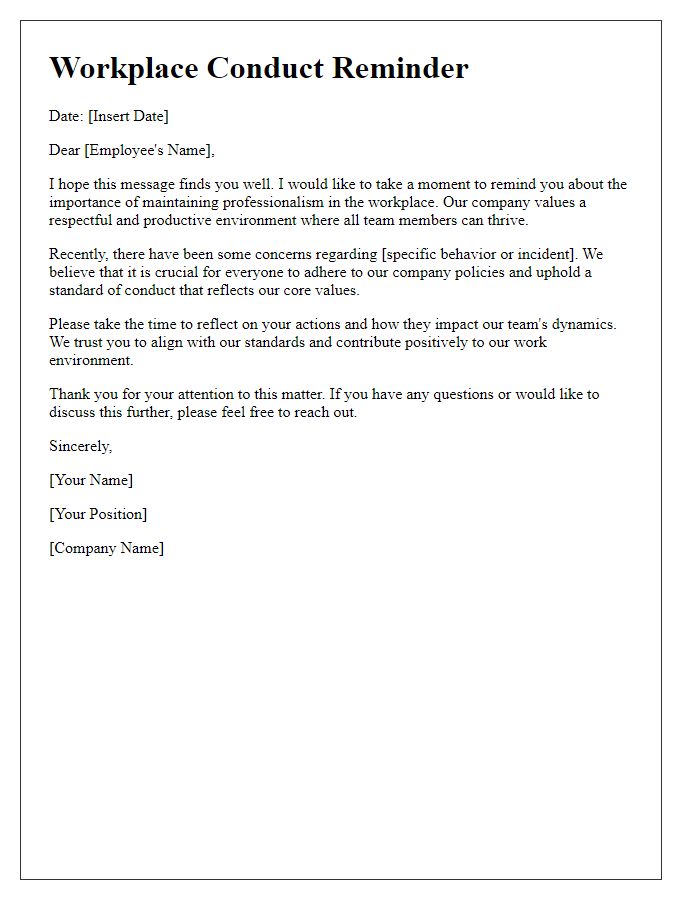
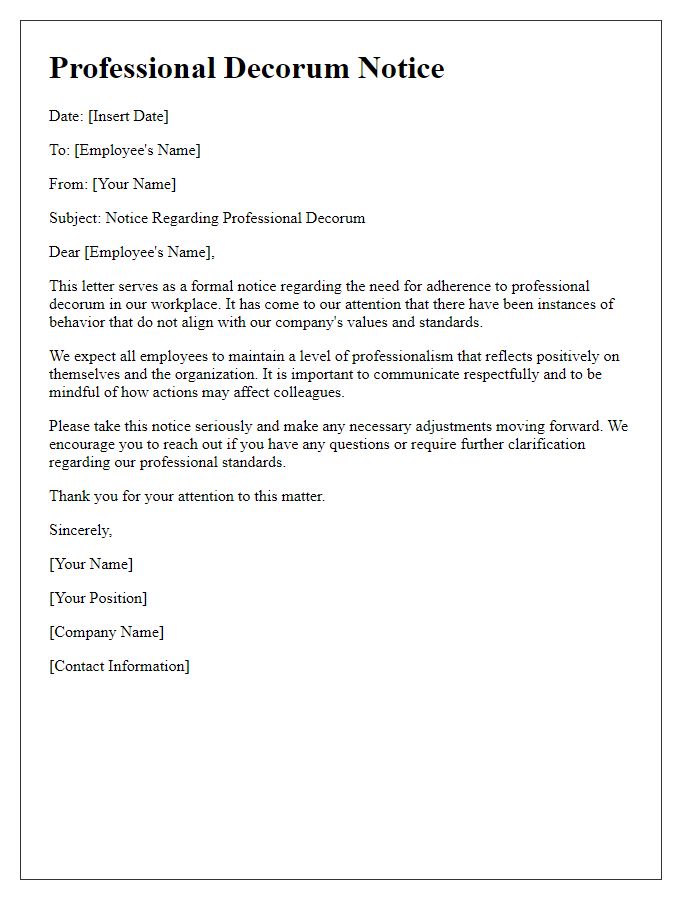
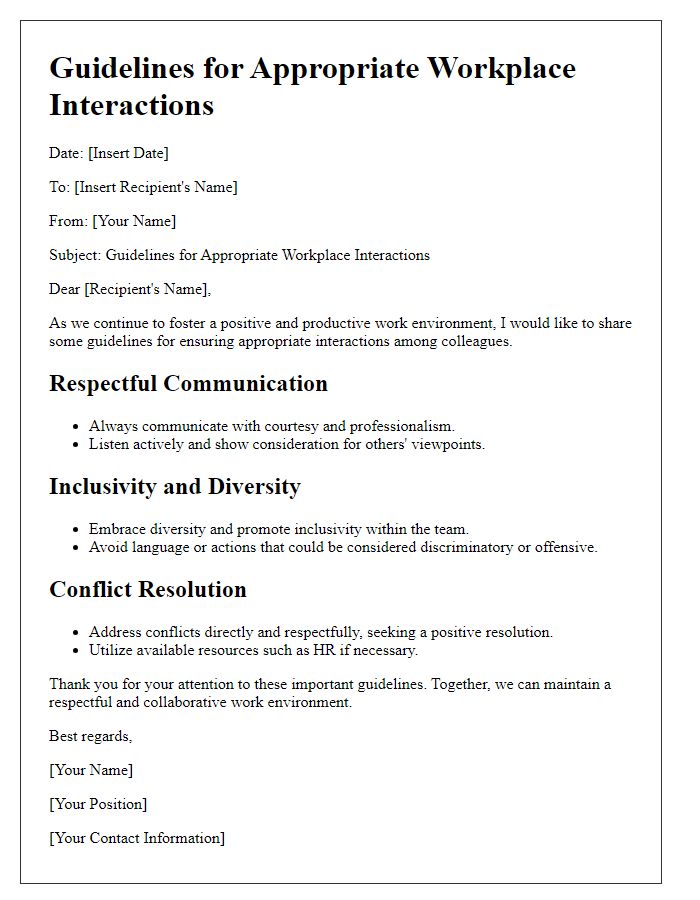
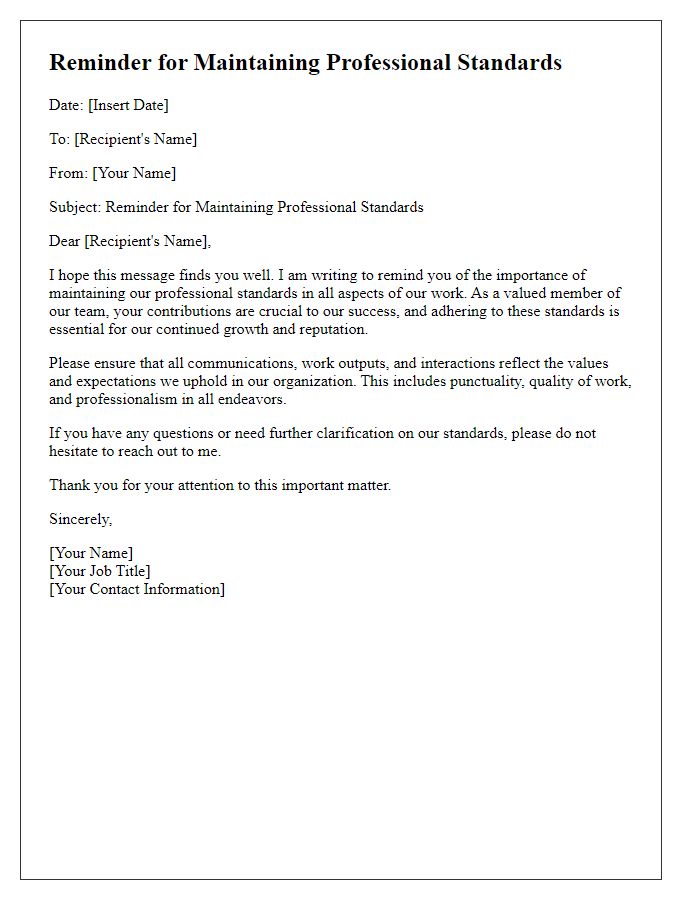
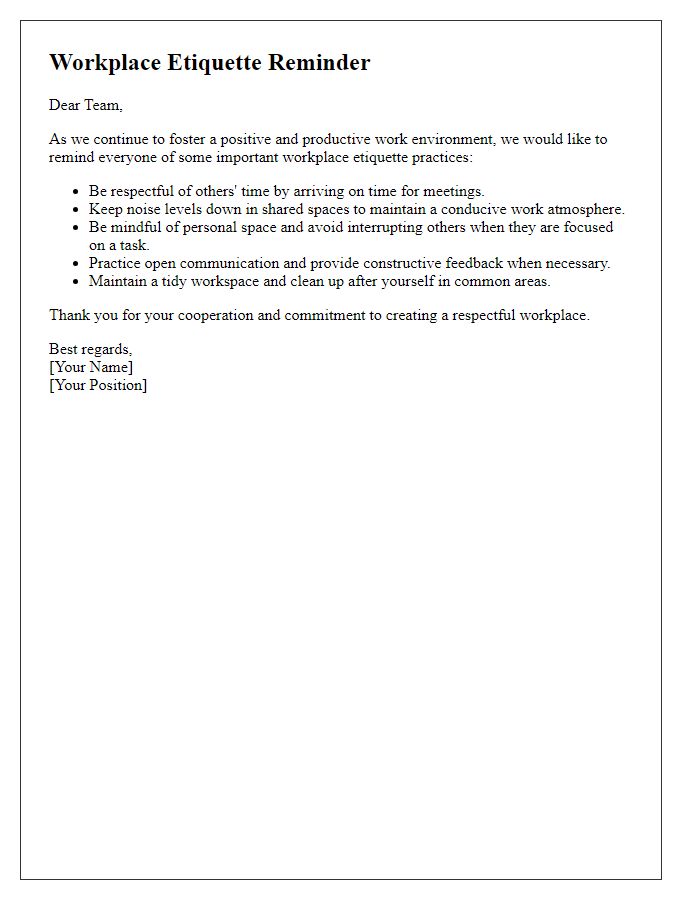
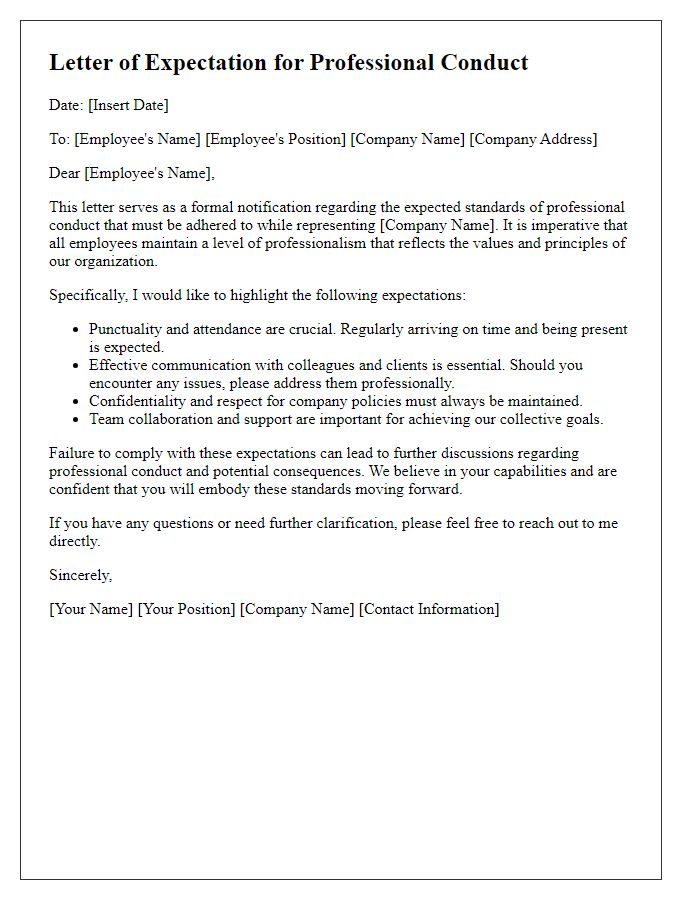
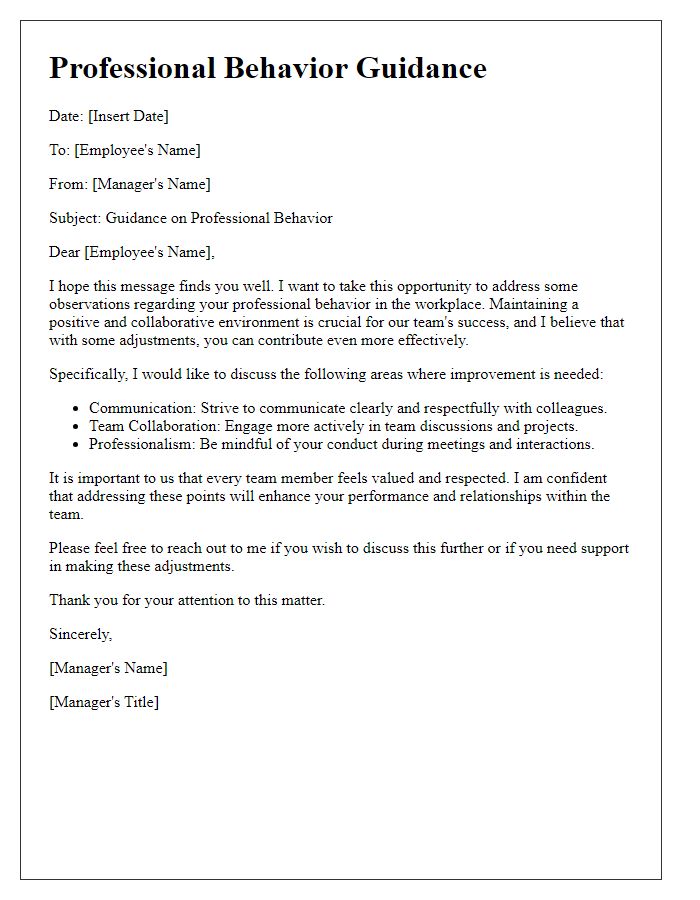
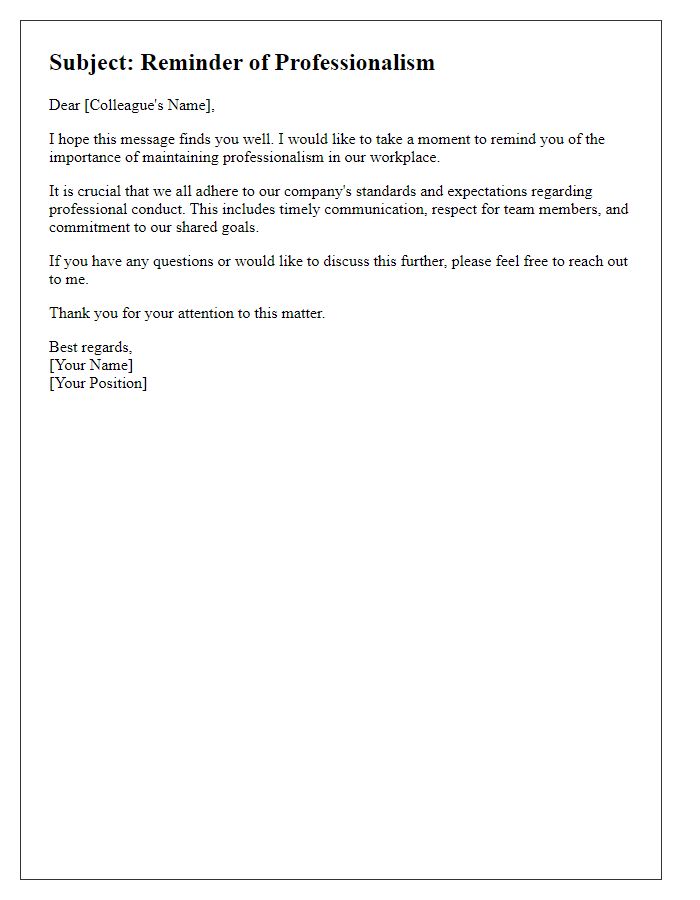
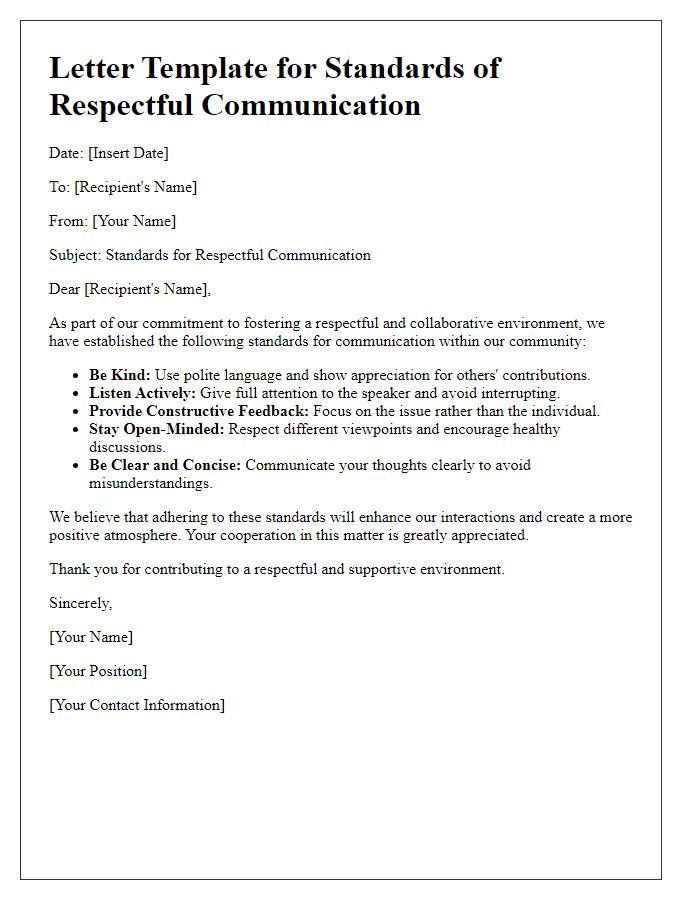
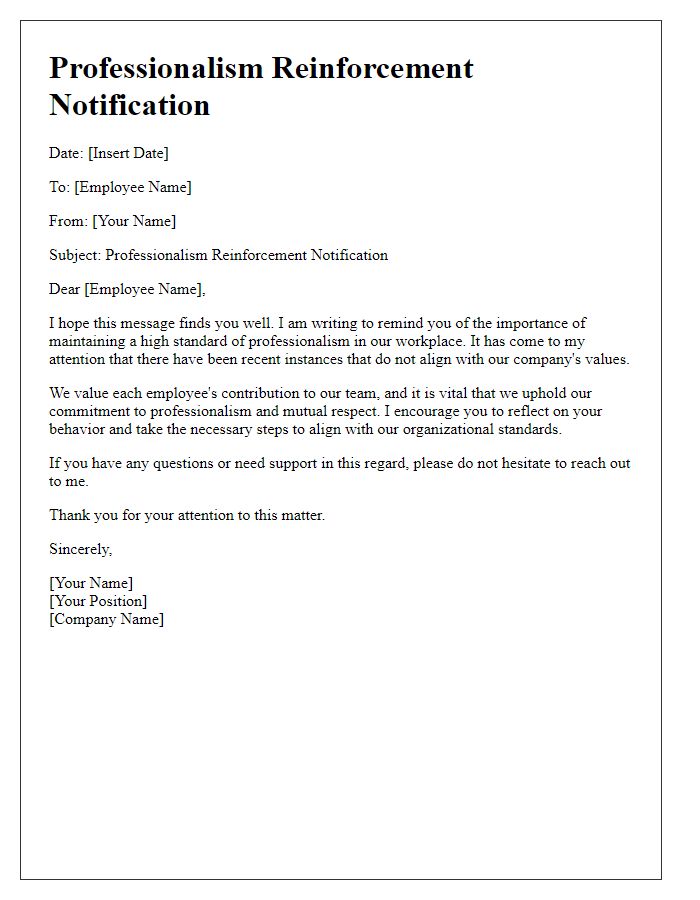


Comments